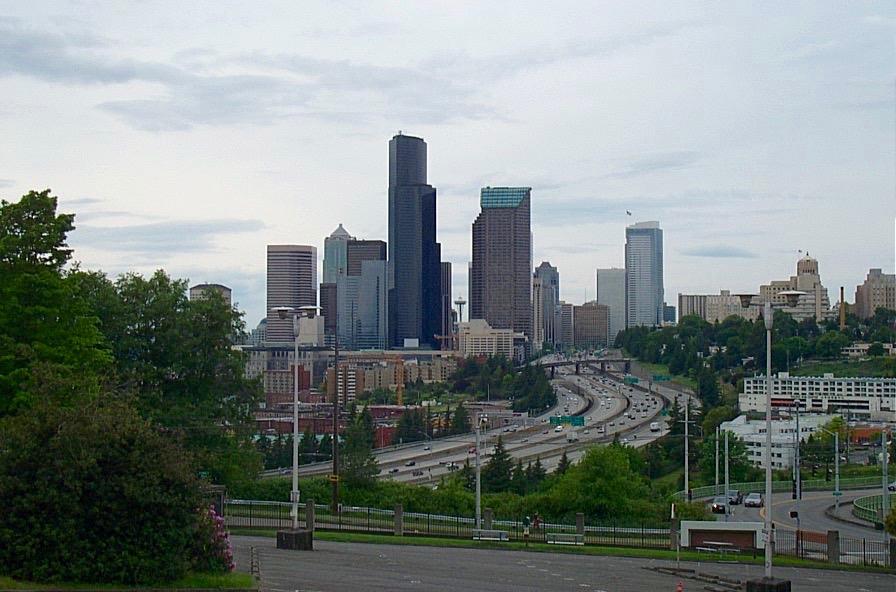State Sen. Reuven Carlyle trusts the mayor.
Carlyle, a Democrat from Queen Anne, led the charge to get $1 million in state money to fence off the sprawling homeless encampment known as the Jungle, an expenditure that has drawn questions. He thinks there is no need to tie the funds for work under I-5 just south of downtown to a requirement that Seattle find alternative homes for the residents.
Rather, Carlyle said Friday, he trusts the mayor and the city "absolutely, unequivocally" to make sure that residents who are swept out of the camp are able to access shelter elsewhere.
That trust, Carlyle said, comes from testimony city officials gave to the Senate Transportation Committee: based on that, he said he thinks they have a plan to deal with the issue. And based on other money for the homeless that Senate Republicans have already written into their generally conservative budget, he said, as well as proposals for more from his own party, the resources will be there to do fund those services.
Sen. Sharon Nelson, D-Maury Island, shared Carlyle's sentiment.
Speaking of Seattle Mayor Ed Murray, Nelson said, "I do believe our mayor has a heart."
Both Carlyle and Nelson emphasized that finding homes for people swept out of illegal camps is the job of the cities where the camps are located. Despite advocates’ criticism of Seattle officials for failing to do so, both said they felt that city officials could be trusted to hold up their end of the bargain without provisos or conditions from the legislature.
Nelson has made help for the homelessness a priority for Senate Democrats since the start of the legislative session. The request for the sweep funding came from Mayor Ed Murray, she said, as a result of conversations she asked Carlyle to have with him about how the Senate could help Seattle with its homelessness problem.
Although long present in South Seattle, the camp known as the Jungle, located beneath and around an elevated section of I-5, exploded into the headlines last month when two were murdered there. The murders happened at nearly the same time as Mayor Murray was giving a speech on what he called a homelessness crisis in Seattle. Since then, reports have highlighted not only the poor conditions in the camp, but also the plight of residents there, some of whom have said in interviews that they can't or don't want to live in homeless shelters.
At the same time, officials in Seattle have garnered criticism for sweeps that homeless advocates have said often don't come with services, and sometimes result in those being "swept" losing many of their possessions.
Carlyle said critics didn't understand that the $1 million for the fence is only part of a funding package Democrats have proposed to deal with growing homelessness in the state. Currently, the Democrat-controlled House has proposed $52 million for homeless funding, while the Republican-controlled Senate has proposed $10 million. Over the next two weeks, the two sides will be hammering out a compromise on the figures in the two budgets.
The fact that Republicans started with a proposal of $10 million likely means that even in the worst-case scenario, anti-homelessness efforts in the state from housing grants to shelter beds will likely get at least that much, Nelson said. Since that money would go into existing programs, who would presumably use it to expand existing services and hire more staff, she said, it would likely have an effect right away — hopefully within six months.
But Nelson added that she saw clearing out illegal homeless encampments as a separate issue, and that even if there were no additional money - or even if there were only $10 million - for programs that help prevent and respond to homelessness, sweeping out the Jungle would still be necessary for public safety.
Carlyle said he agreed.
Carlyle said that providing services is vital, but closing down the "incredibly dangerous" Jungle "can't necessarily wait for that plan."
At least one Republican Senator was skeptical of the idea of more funding, however. Sen. Mark Miloscia, R-Federal Way, who has been active on homelessness issues among Senate Republicans, said he thought elevated homelessness rates in Seattle were entirely the city's fault. Instead, Miloscia blamed the city for "mismanagement" of homelessness programs that are already well-funded.
Senate Republicans, in general, have given a cool reception to proposals for more homeless funding. After Nelson proposed tapping the state's rainy day fund to pay for her anti-homelessness package, leaders including Senate Majority leader Senator Mark Schoesler, R-Ritzville, rejected the idea that homelessness was an emergency of sufficient magnitude or an appropriate use of a fund meant to help the state get through economic downturns.



